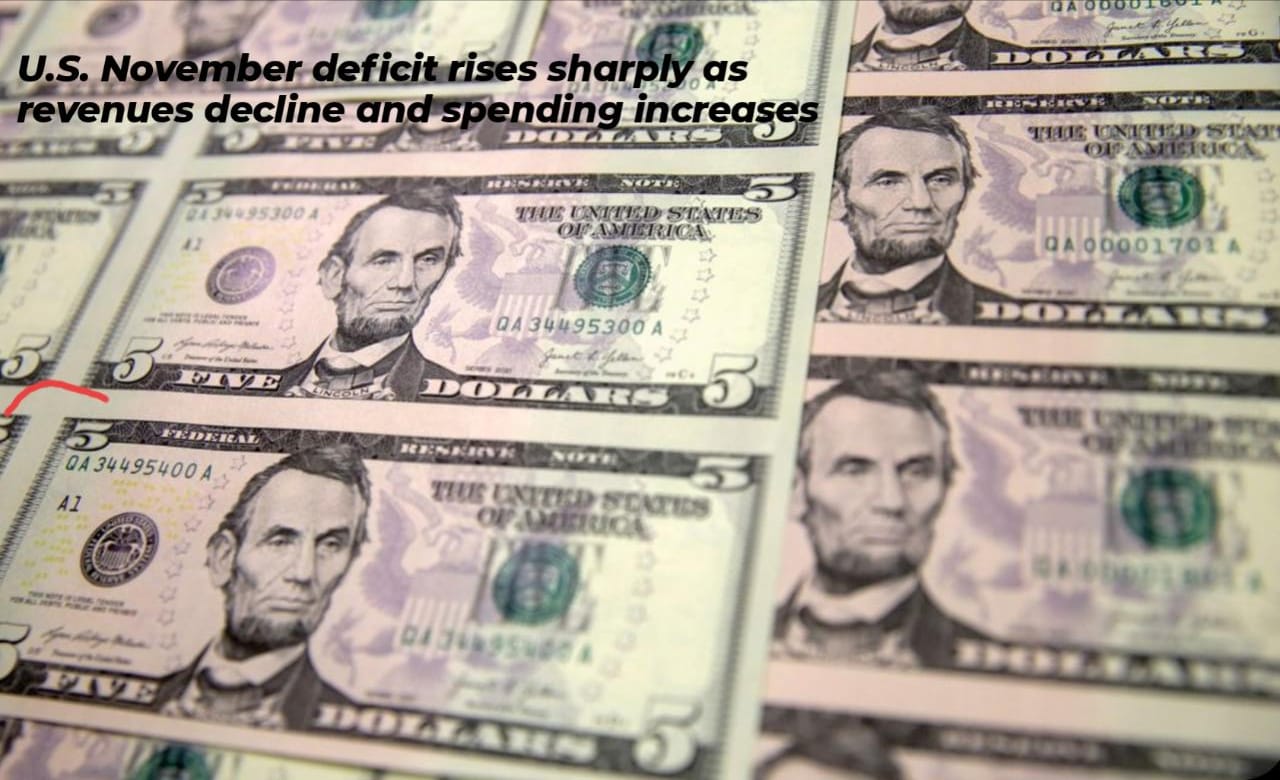
According to the U.S. Treasury, the November budget deficit in the United States increased by $57 billion or 30% from a year earlier to $249 billion, setting a record for the month. This was due to lower revenue and sharp increases in spending on healthcare, education, and interest on the national debt.
While outlays increased 6% or $28 billion to $501 billion, also a record for November, receipts for November decreased 10% or $29 billion from a year earlier.
Individual withheld tax receipts fell by 4%, individual tax refunds rose by 64%, and Federal Reserve earnings fell by 98%, all of which contributed to a decline in revenue.
According to a Treasury official, the expenditures were driven by an increase in Medicare costs of $14 billion, or 18%, and an increase in education costs of $11 billion, or 94%, as a result of changes to direct student loan programmes and public service loan forgiveness.
In November, the Treasury’s interest payments on the nation’s debt increased by 53%, or $19 billion, but this increase was largely offset by a $17 billion decrease in tax credits for low-income families and children. Interest payments made by the Treasury during the first two months of fiscal 2023 are up $48 billion, or 87%.
When compared to the same period a year earlier, the Treasury’s deficit for the first two months of fiscal 2023 was down 6%, or $20 billion, to $336 billion.

Post Your Comments